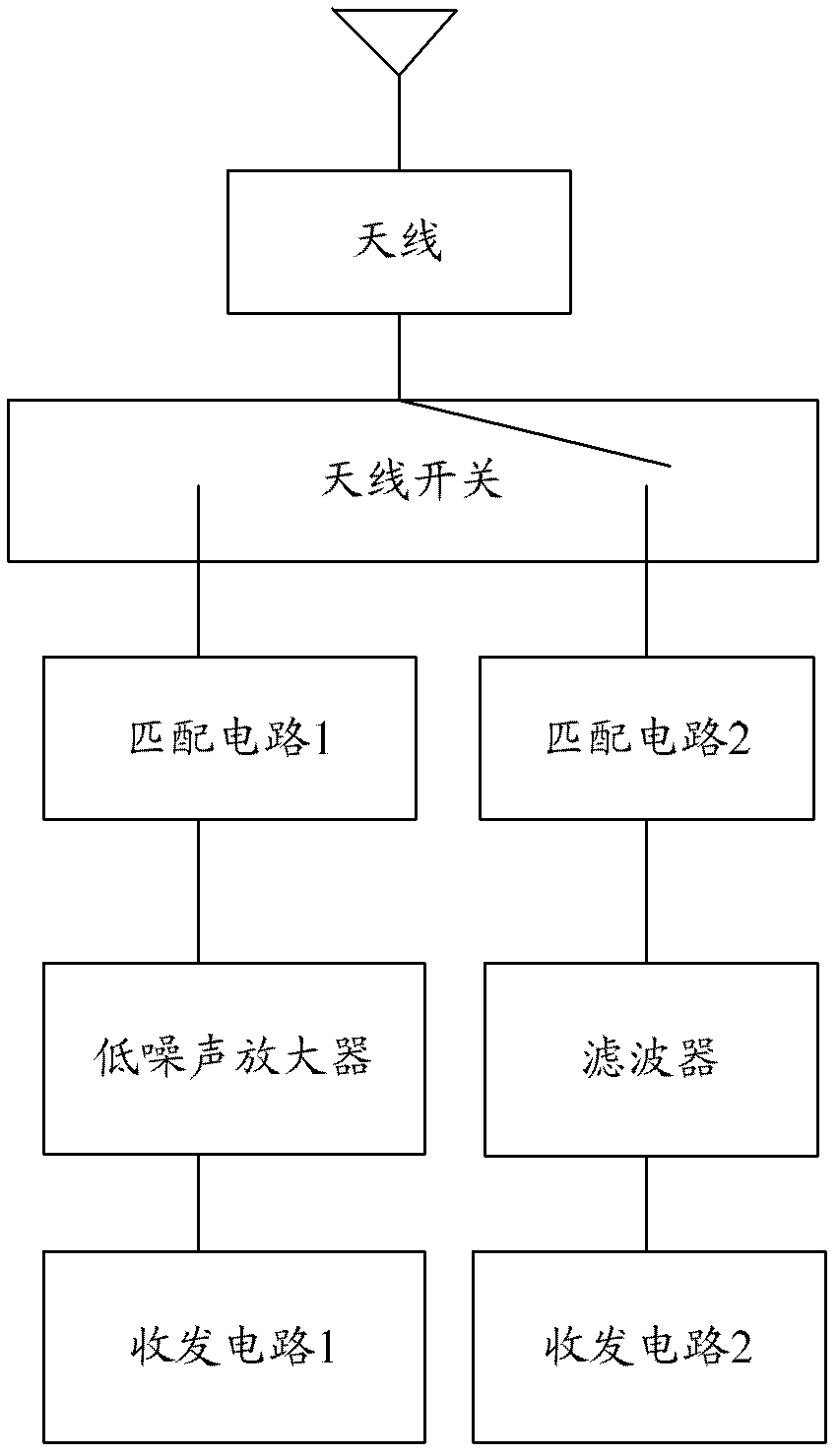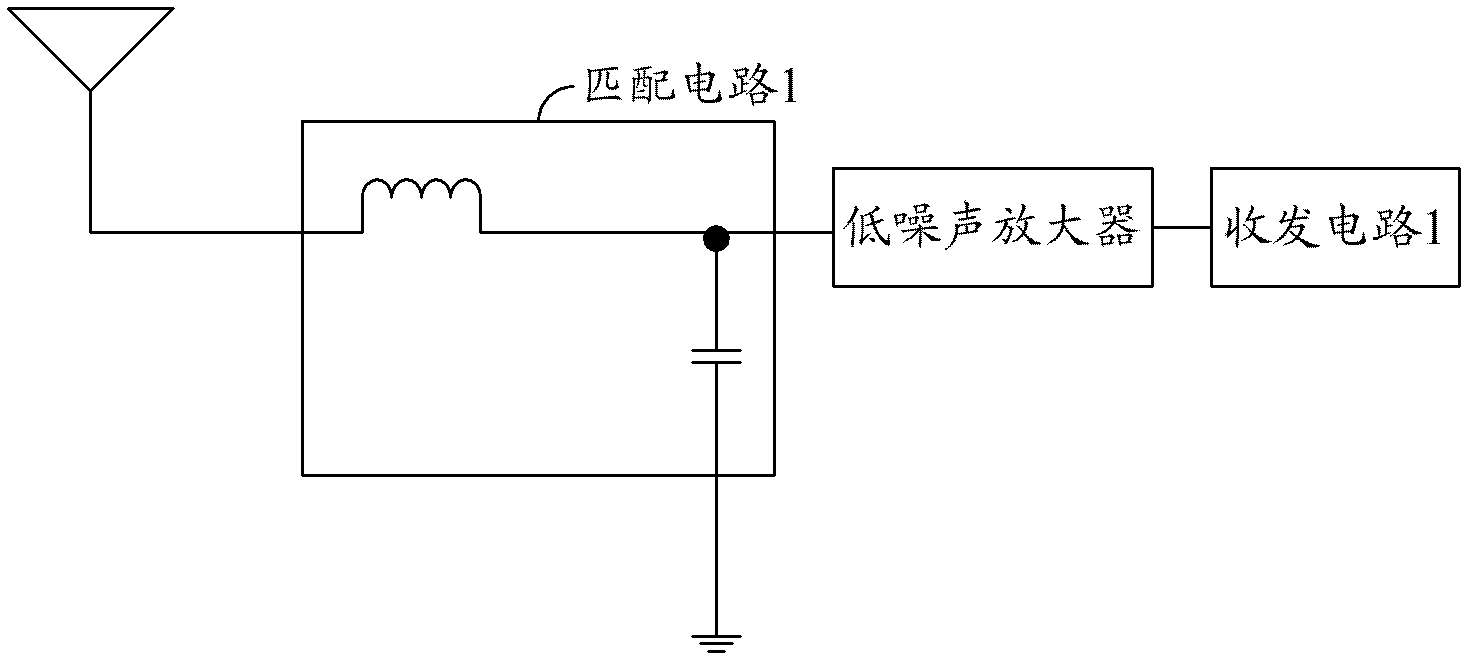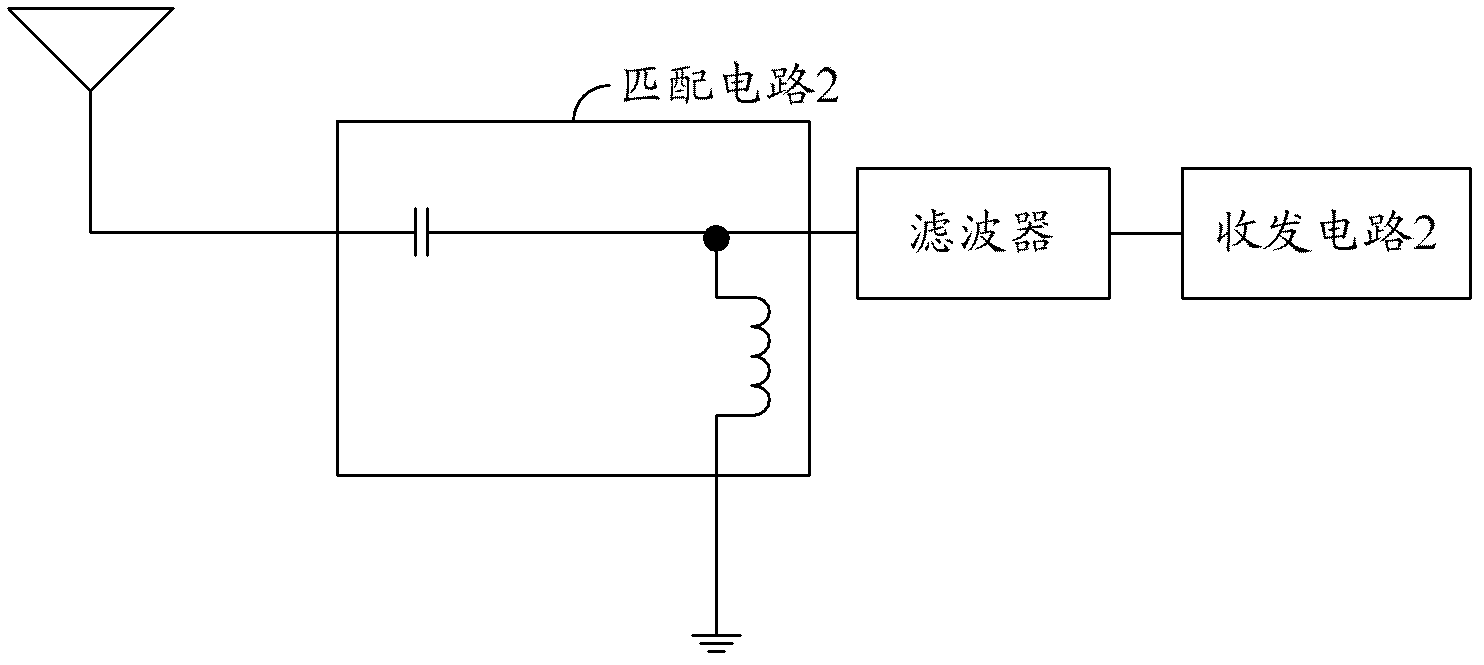Matching circuit, matching circuit network and signal transmit-receive device
A matching circuit and network technology, applied in the direction of electrical components, transmission systems, etc., can solve the problem of high complexity of signal transceiver devices, and achieve the effects of improving signal receiving efficiency, reducing costs, and reducing complexity
- Summary
- Abstract
- Description
- Claims
- Application Information
AI Technical Summary
Problems solved by technology
Method used
Image
Examples
Embodiment 1
[0069] The signal transceiving device in this embodiment is as Figure 8 As shown, it mainly includes: an antenna, a high-frequency transmission branch, a low-frequency transmission branch, a first transceiver circuit and a second transceiver circuit, wherein the high-frequency transmission branch and the low-frequency transmission branch are connected in parallel between the antenna and the first transceiver circuit Between the circuit and the second transceiver circuit, the input end of the high frequency transmission branch and the input end of the low frequency transmission branch are connected to the antenna, and the output end of the high frequency transmission branch is connected to the second transceiver circuit , the output end of the low-frequency transmission branch is connected to the first transceiver circuit.
[0070] Wherein, the high-frequency transmission branch includes a first high-frequency matching circuit, and the low-frequency transmission branch include...
Embodiment 2
[0079] The signal transceiving device in this embodiment is as Figure 10 As shown, it mainly includes: an antenna, a high frequency transmission branch, a low frequency transmission branch and a transceiver circuit, wherein the high frequency transmission branch and the low frequency transmission branch are connected in parallel between the antenna and the transceiver circuit, and the high The input end of the high-frequency transmission branch and the input end of the low-frequency transmission branch are connected to the antenna, and the output end is connected to the transceiver circuit. The high-frequency transmission branch includes a first high-frequency matching circuit and a second high-frequency matching circuit, the low-frequency transmission branch includes a first low-frequency matching circuit and a second low-frequency matching circuit, and the transceiver circuit is used for receiving high-frequency signals and low-frequency signals.
[0080] Wherein, the first...
Embodiment 3
[0086] In practical applications, the high-frequency transmission branch and the low-frequency transmission branch of the signal transceiver device described in Embodiment 2 can be further subdivided, and the signal received by the antenna is matched and transmitted through four branches, so as to achieve The single-frequency antenna is respectively matched to the effect of four frequency bands, which improves the bandwidth of the antenna.
[0087] The signal transceiving device in this embodiment is as Figure 12 As shown, there are three matching circuit networks, one of which is a primary matching circuit network, and the other two are secondary matching circuit networks. The low-frequency transmission branch in the primary matching circuit network contains the first low-frequency matching circuit and the second The low-frequency matching circuit includes a first high-frequency matching circuit and a second high-frequency matching circuit on its high-frequency transmission ...
PUM
 Login to View More
Login to View More Abstract
Description
Claims
Application Information
 Login to View More
Login to View More - R&D
- Intellectual Property
- Life Sciences
- Materials
- Tech Scout
- Unparalleled Data Quality
- Higher Quality Content
- 60% Fewer Hallucinations
Browse by: Latest US Patents, China's latest patents, Technical Efficacy Thesaurus, Application Domain, Technology Topic, Popular Technical Reports.
© 2025 PatSnap. All rights reserved.Legal|Privacy policy|Modern Slavery Act Transparency Statement|Sitemap|About US| Contact US: help@patsnap.com



